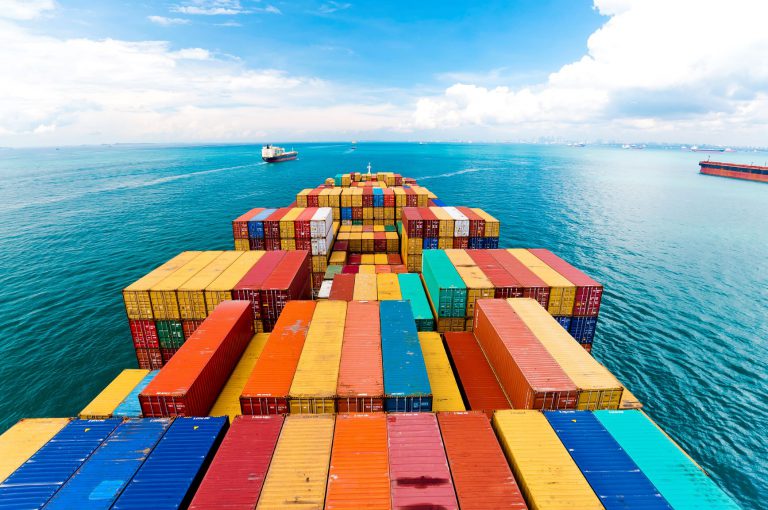
Shipping freight by container has been a staple of overseas delivery since commercial shipping began. The ever-increasing size of shipping containers meant you could measure the confidence in that industry on this metric alone. Still to this day, hulking megaships serve the global industry by shipping goods around the world.
But has their time dominating sea come to an end?
With rising fuel prices, a drop in demand for container shipping, and capacity increasingly out of sync with demand, container shipping operatives are facing new challenges all the time. While it may still seem to be the backbone of global trade, is it finally nearing its end as the number one mover?
Pre-2008, with an increase of almost 8% annually, many business owners spent billions investing in maritime shipping. However, China’s economy is slowing and Europe is in geopolitical instability surrounding Britain’s proposed withdrawal from the E.U., both negatively affecting the global container shipping industry. One of the world’s leading container shippers by capacity recently told investors they are expecting to see a decrease of 1-3% interest this year alone.
Fuel Prices
Shipping executives predict that uncertainty over cleaner fuels will make price estimates rise. Some have claimed that it has turned the shipping market into a form of casino where owners are gambling with their businesses. It is the persistent imbalance between shipping suppliers and demand that is adding to the uncertainty that surrounds the industry at present.
2019 will bring uncertainties because of the risks of further restrictions on global trade. New regulations brought in by the International Maritime Organization to cut emissions will significantly increase fuel prices further.
In order to offset the rising costs of fuel, it’s projected that shipping operators will pass on about $10billion a year to cargo owners but even then, they will still be absorbing some of the cost themselves.
Ultra-Large Shipments a Solution?
One possible solution that has been forwarded by some of the larger container shipping companies is that ultra-large container ships are put into use. These ships would be capable of moving up to 22,000 boxes at a time, reducing the cost of shipping smaller quantities on several smaller ships and cutting fuel consumption overall.
This does not come without its own problems, however. Not all waterways and destinations would be able to accommodate and receive such a large ship. Plus, with the industry facing uncertainty, there may not be demand for large shipping containers.
When it comes to global logistics, there are many problems currently being faced. Below are some of the major issues and what the future might hold for the container shipping industry.
Communication
Communication between the business, customers and the freight forwarders often cause more problems than it solves. Constant tracking of shipments and update requests are common as the customer wants to know where their package is and what is happening at all times. Communication of businesses from port to port is also vital in order to ensure smooth running of the system. Communication breakdowns need to be addressed if freight container shipping is to take off again or at least make some sort of resurgence.
Security
Security is fast becoming a growing concern for the global shipping industry. This is in part due to the volume in which goods are being passed between suppliers to reduce cost. A single delivery might be exchanged between a delivery driver, a warehouse, another delivery driver, then a port, and so on.
This continued movement between companies means that the security of the cargo is put in jeopardy several times during its journey. Each time it passes hands, that agent may have different security protocols in place, meaning there is no unified security system.
To rectify this, the shipping industry needs to eliminate as much unnecessary handling as possible and implement a more unified security protocol to reignite the trust in global freight shipping.
Demand
The container shipping industries inability to respond to the demand for fast delivery is a major challenge currently being faced. Clients want their deliveries as quickly as possible and so the demand on logistics is under pressure. Even though container shipping involves long distance deliveries, people still demand quick turnaround; even a week can seem like a long time for international shippers. This is exasperated at busy times of the year and difficulties at ports can lead to long delays.
Capacity
Capacity can be an unseen issue for global container shippers. As the volume of shipments increases due to the desire to reduce shipping costs, the available space onboard container ships decreases as it is filled. This ultimately causes problems for shippers – if there is no room on the ship, delays are inevitable. Finding a cheaper, greener fuel source may be key to this issue since it would allow for smaller, more frequent shipments.
Infrastructure
The infrastructure of the industry is also an inherent problem. Global sales and deliveries are increasing and the container shipping industry needs to evolve in order to accommodate this. Some ports, however, still can’t cope with the growing demand or deal with the volume of goods that are being brought through their doors. Increasing the infrastructure’s capacity at major ports will be key to sustaining growth in this sector.
Final Thoughts
The nature of international shipping is changing and while global container shipping was able to upscale accordingly, it now seems unable to downscale or economise sufficiently to keep in line with global trends as well as new rules and regulations.
Although interest is declining, it is not in freefall and there is still demand and desire to ship via container overseas. The major issue facing the industry at present is the cost associated with the volume trying to be shipped due to regulations and fuel hikes.
Overall, it is not the end for container shipping, but it does stand on a precipice of a changing world in which it must adapt.
Tags: Courier, Economy, International Shipping, Shipping Overseas